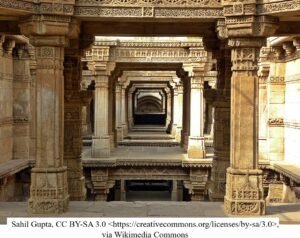Ashtavakra was born with eight deformities in his body. He was born, in a town called Videha, present day Janakpur, Nepal. He was named Ashtavakra–Ashta means Eight and Vakra means a curve or a deformity.
While Ashtavakra’s mother Sujata was pregnant, his father Kahoda would recite Vedas to her. The unborn genius Ashtavakra, even in her mother’s womb, learnt the holy texts.
His father, Kahoda, once pressed by poverty, went to King Janaka’s court to beg for money. He was asked to take part in a debate and win the money, but he lost the debate and was asked to serve as the court’s philosopher. He was not allowed to return to his home, and nobody knew about his whereabouts. Even Ashtavakra’s mother kept this secret from him.
Ashtavakra grew up to be a brilliant student, but in the school, he was teased by fellow students by saying “you have no father.” One day he came home and asked his mother about his father. She told him that his father had gone to Janak’s court and had never returned.
Curious Ashtavakra approached Janak’s palace where the court was in progress. As he was entering the court, all the elite pundits laughed at his deformed body. Ashtavakra also laughed. Perplexed, Janaka asked Ashtavakra, “They are laughing at your abnormal body, but what are you laughing at?” Ashtavakra said, “I am laughing at the thought that the honorable pundits and scholars in this court, are no better than cobblers since they are looking at me as the skin/body (of course deformed), whereas I see myself (and them) as one Atma. They are paying attention to only the body.” He pointed out that the crookedness of the physical body has no effect on Atma. The king was impressed and allowed him to debate Vandin, the head courtier, even though he was only a ten-year-old child. Ashtavakra defeated Vandin in the debate and got the release of his father. His father was incredibly pleased with his son.
The impressed King Janak became a disciple of Ashtavakra. He requested Ashtavakra to impart him the wisdom. The dialogue between Ashtavakra and King Janaka is known as Ashtavakra Gita, also called Ashtavakra Samhita. It is compatible with the dialogue of Bhagvad Gita.
Ashtavakra Gita is a short treatise of Advaita darshan. Some of the valuable lessons from Ashtavakra Gita are:
- Self-Realization transcends the physical body.
- Detachment leads to Moksh.
- Mind is both friend and enemy.
- Live in the present moment, be happy.
- Seek knowledge not rituals.
— Sanjay Mehta


